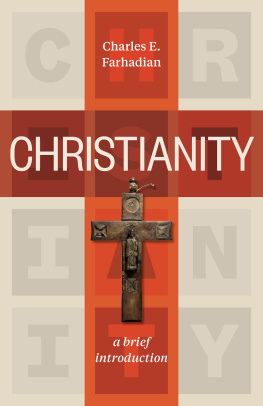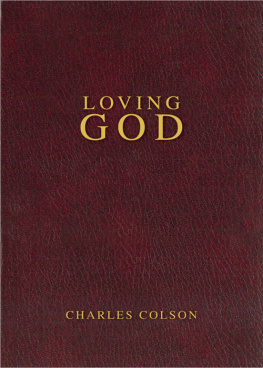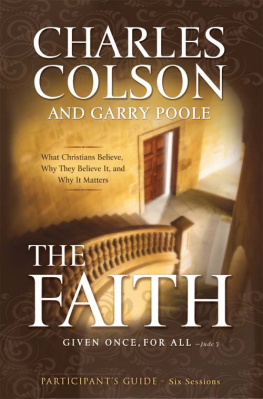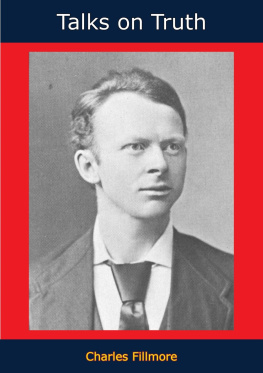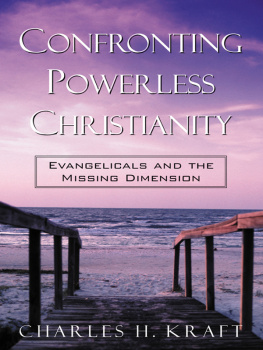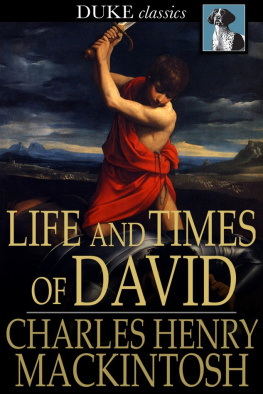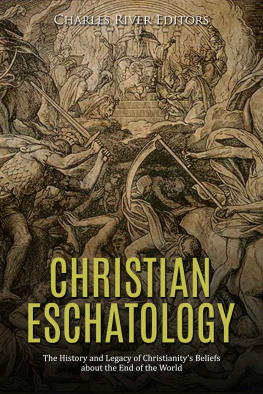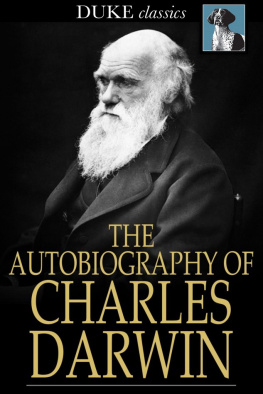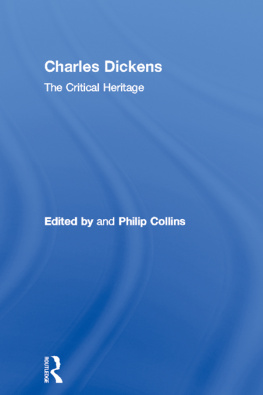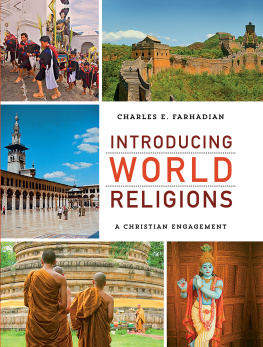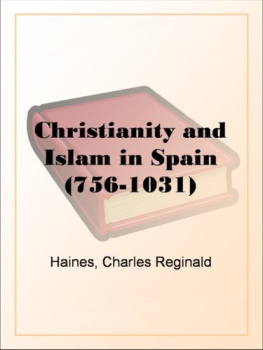Charles E. Farhadian - Christianity
Here you can read online Charles E. Farhadian - Christianity full text of the book (entire story) in english for free. Download pdf and epub, get meaning, cover and reviews about this ebook. year: 2020, publisher: Baker Publishing Group, genre: Religion. Description of the work, (preface) as well as reviews are available. Best literature library LitArk.com created for fans of good reading and offers a wide selection of genres:
Romance novel
Science fiction
Adventure
Detective
Science
History
Home and family
Prose
Art
Politics
Computer
Non-fiction
Religion
Business
Children
Humor
Choose a favorite category and find really read worthwhile books. Enjoy immersion in the world of imagination, feel the emotions of the characters or learn something new for yourself, make an fascinating discovery.
- Book:Christianity
- Author:
- Publisher:Baker Publishing Group
- Genre:
- Year:2020
- Rating:3 / 5
- Favourites:Add to favourites
- Your mark:
- 60
- 1
- 2
- 3
- 4
- 5
Christianity: summary, description and annotation
We offer to read an annotation, description, summary or preface (depends on what the author of the book "Christianity" wrote himself). If you haven't found the necessary information about the book — write in the comments, we will try to find it.
Christianity — read online for free the complete book (whole text) full work
Below is the text of the book, divided by pages. System saving the place of the last page read, allows you to conveniently read the book "Christianity" online for free, without having to search again every time where you left off. Put a bookmark, and you can go to the page where you finished reading at any time.
Font size:
Interval:
Bookmark:
Lovingly dedicated to
Jeanette Farhadian

2020 by Charles E. Farhadian
Published by Baker Academic
a division of Baker Publishing Group
PO Box 6287, Grand Rapids, MI 49516-6287
www.bakeracademic.com
Ebook edition created 2020
All rights reserved. No part of this publication may be reproduced, stored in a retrieval system, or transmitted in any form or by any meansfor example, electronic, photocopy, recordingwithout the prior written permission of the publisher. The only exception is brief quotations in printed reviews.
Library of Congress Cataloging-in-Publication Data is on file at the Library of Congress, Washington, DC.
ISBN 978-1-4934-2365-1
Unless otherwise indicated, Scripture quotations are from THE HOLY BIBLE, NEW INTERNATIONAL VERSION, NIV Copyright 1973, 1978, 1984, 2011 by Biblica, Inc. Used by permission. All rights reserved worldwide.
Scripture quotations labeled NASB are from the New American Standard Bible (NASB), copyright 1960, 1962, 1963, 1968, 1971, 1972, 1973, 1975, 1977, 1995 by The Lockman Foundation. Used by permission. www.Lockman.org
Scripture quotations labeled NRSV are from the New Revised Standard Version of the Bible, copyright 1989 National Council of the Churches of Christ in the United States of America. Used by permission. All rights reserved.
Cover
Title Page
Dedication
Copyright Page
Preface
Introduction
1. Who Are Christians?
2. Where Are Christians?
3. Why Is the Bible So Important to Christians?
4. What Is the Christian Church?
5. How Do Christians Worship?
6. Where Is Christianity Going?
7. How Does Christianity Relate to Other Religions?
Index
Back Cover
B ooks are often born from conversations. This one was. On a walk with Jim Kinney, executive vice president at Baker Publishing Group, I shared my interest in writing something on world Christianity in order to add my own ideas to the important conversation about this relatively new field of study. On further thought, turning Christianity into world Christianity seemed artificial. Isnt Christianity already global without the redundancy of attaching world or global to it? Calling it world Christianity or global Christianity would be unnecessary since its transnational connections are part and parcel of the faith, something already written indelibly into its DNA. Christianity was at its inception global, beginning with Jewish communities and then burgeoning into gentile regions and beyond. This means that rather than being a stagnant set of doctrines, Christianity is a movement, whose final destination is hinterland, suburbia, and urban centers. It is the nature of Christianity to be worldwide, to extend itself beyond its current boundaries. That expansion has made Christianity a global religion.
The purpose of this book is straightforward: to provide an accessible introduction to Christianity, without getting sidetracked by following too many bunny trails of debate that have wracked the faith since its inception. Some of those conflicts will be noted, since they are crucial to the way that Christianity has been shaped, but this is not a conflict-driven book. Rather, the book lays out a clear and generous view of Christianity, noting the influences that have shaped the religion through the centuries. By generous I mean that I pitch Christianity as a broad movement that consists of Roman Catholic, Eastern Orthodox, and Protestant expressions. It is important to recognize that while these three streams of Christianity account for the vast majority of Christians, they are not representative of all forms of the faith.
Christian readers will find themselves at home in these pages. They will recognize the key concepts of Christianity and locate themselves within its broad themes. And those new to the faith or without any knowledge of it will find a friendly approach that honors readers intelligence without being overly academic. What makes Christianity tick? What is so compelling about it? Why ought we to be interested in Christianity? I will answer these questions and more in this book.
Over the past years, there has been interminable talk about Christianity, as both help and hindrance. Christianity, at once blamed for social conflict and embraced as revitalizing individuals and cultures, is such a massive religion that almost anything one says about it could be true, at least in some place or time. One thing is absolutely correct: Christianity, like other religions, is not simply a set of doctrines or practices. Rather, Christianity is deeply connected to everything in life, from how one understands the cosmos, to how one navigates ones inner life, to whom one marries and how one treats others.
Views of the body, the natural world, politics, economics, ethics, ones mind, ambitions, suffering, anxiety, and hope are profoundly shaped and given meaning and purpose by Christianity. While coverage of all these topics is impossible in such a few pages, this book strikes a balance between breadth and depth, without succumbing to either superficiality or the hedged-in, intractable tensions within Christianity.
On several occasions, while traveling internationally, I have been asked variations of the same question. It goes something like this: What religion are you, Catholic, Methodist, or Lutheran? What an incongruous question, since these three religions are actually the same religionthey are all forms of Christianity. The word ecumenism was a more popular term in the past, but it still conveys an important insight about Christianity. Ecumenism means the whole household of God. To be ecumenical means to affirm the churchs unity above denominational lines. Unfortunately, this does not always work out well on the ground, but many Christians do recognize that Christianity is essentially one, made up of many expressions. That is to say, anyone who accepts the basic affirmations of Christianity is Christian, whether they are Roman Catholic, Methodist, Lutheran, or one of the hundreds, probably even thousands, of denominations of Christianity. This book presents the parameters of Christianity that define the faith for all Christians.
My hope is that anyoneChristian or otherwisecan read this book and gain an appreciation for the largest religion in the world. Part of the uniqueness of this work is my purposeful departure from focusing exclusively on the Global North. My hope is that the interest of Christians reading this book will be piqued and refreshed by its global viewpoint. Practitioners of other religious traditions will find here a concise study of Christianity, not just its Western perspectives.
My understanding of Christianity comes from years of study, personal experience, and interactions with Christians. I teach world religions at Westmont College, a Christian liberal arts college located in Santa Barbara, California, where I compare religions such as Hinduism, Buddhism, Jainism, Sikhism, Shinto, Taoism, and Confucianism. I also teach Christian missiology, the study of the sending of the Christian church into the world to share the good news of Jesus Christ, where I emphasize the cultural and social shifts that occur when communities become Christian. Interpreting those changes within Christianity requires the ability to see the tradition from within and withoutthat is, to understand Christianity through the eyes of the believer as well as from the vantage point of an outsider to the faith. So I write both as an insider to Christianity and as one who can see the tradition from outside itself, at least in terms of comparing it with other religions.
Font size:
Interval:
Bookmark:
Similar books «Christianity»
Look at similar books to Christianity. We have selected literature similar in name and meaning in the hope of providing readers with more options to find new, interesting, not yet read works.
Discussion, reviews of the book Christianity and just readers' own opinions. Leave your comments, write what you think about the work, its meaning or the main characters. Specify what exactly you liked and what you didn't like, and why you think so.

